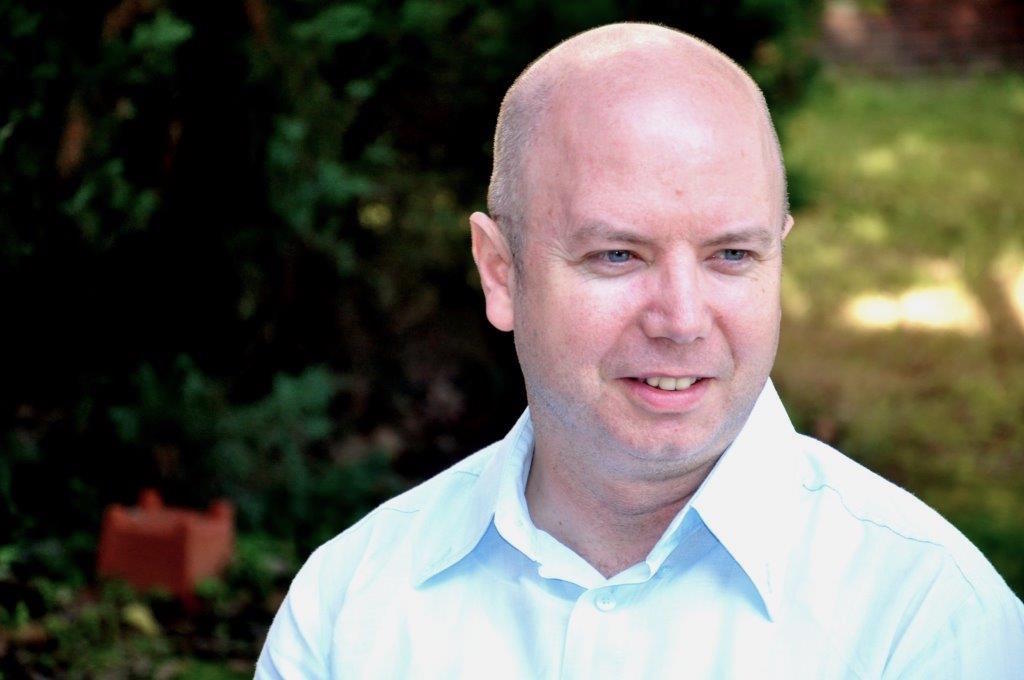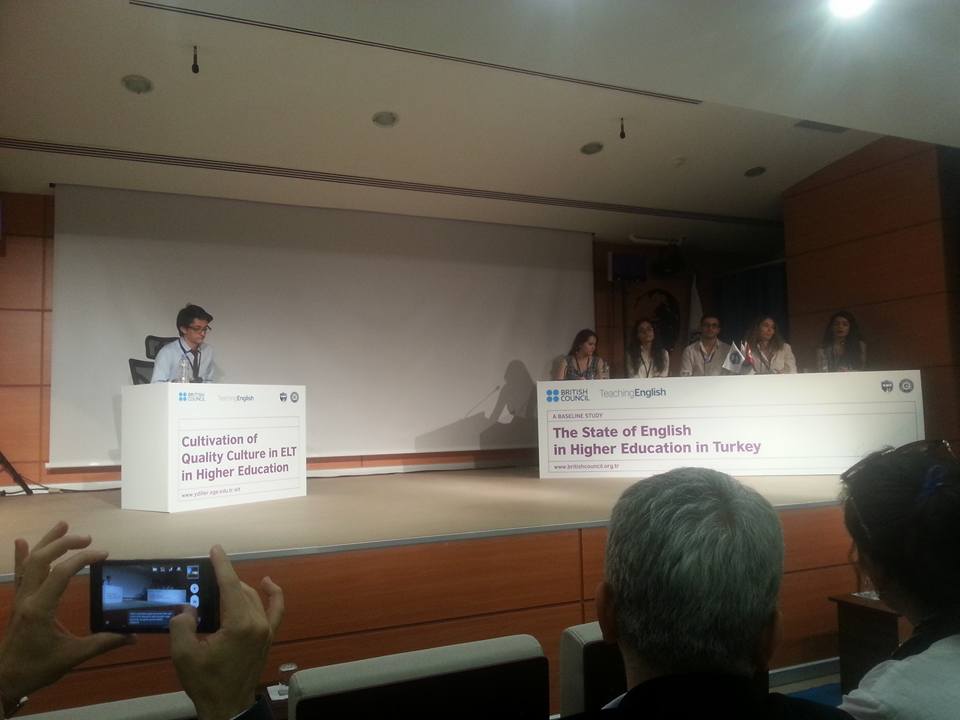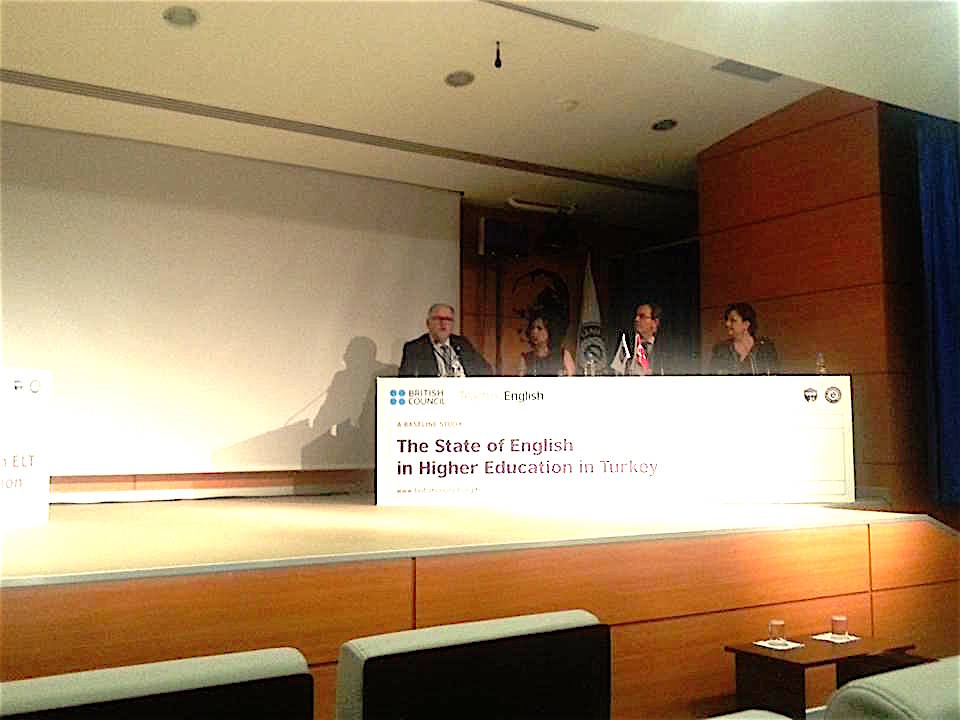Quality in Higher Education

Ege University and British Council ELT conference on Quality in Higher Education
A review by Jonathan Smith
On 26th & 27th May 2016, Ege University hosted a conference which was the third in a series of events related to the publication last November of a British Council baseline study on The State of English in Higher Education in Turkey.
The first day of the event consisted in plenary and concurrent sessions focusing on the topic of quality in English language teaching in universities. The second day focused more widely on English in higher education in Turkey in the light of the British Council report which was published in November last year after research conducted in 38 universities in Turkey. It explores the challenges facing teachers and learners in English-medium instruction (EMI) and makes a range of recommendations at the national and institutional level (both for English language instruction and for content instruction using EMI).
On the second day, there were plenary sessions on quality assurance in higher education from Gwyne Harries and George Pickering, and a series of panel discussions on issues arising from the BC report. The first was a panel of rectors from universities in İzmir. Another panel, which included Deniz Kurtoğlu Eken from Sabancı University School of Languages, discussed quality and accreditation for English language preparatory programmes. The final panel of university students was arguably the most stimulating; it was expertly moderated, with pertinent questions and well prepared answers directly addressing the BC report. It was very illuminating to hear the learners’ perspective on these recommendations.
To my mind, the main thrust of the report is that there is a gap between students’ experience of EMI and the language instruction they receive during preparatory programmes. To bridge this gap, on the one hand EMI instructors need to develop more awareness of learners’ language level and adopt a more Content & Language Integrated Learning (CLIL) approach; while on the other hand, preparatory programmes should adopt a more EAP approach. The administrators’ role in this is to ensure that resources are provided for this and that the necessary climate of collaboration is fostered.
SL’s continuing commitment to encouraging the sharing ideas and effective practice between institutions and individuals, though our contribution to professional networks such as FOCI, T-plus and FOAI, our SL publications and events, will hopefully positively contribute to this process.
The conference - both during sessions and during informal chats during the breaks -was a chance to reflect on the recommendations and to hear a range of very different reactions to the report. Some are less than welcoming of all of its recommendations or not fully convinced of the arguments put forward. In my opinion, however, this report should be welcomed by all, as it can now act as a catalyst for serious reflection on our practices. It sets an agenda of a variety of issues which need to be addressed, not by preparatory programmes alone, but which concern higher education institutions as a whole. These can only be addressed effectively through collaboration between policy makers, administrators, English language teachers and EMI lecturers, while also allowing learners themselves to have their say and listening to what they have to tell us.
This report could mark a pivotal moment for English in higher education in Turkey, if it means that the learning of English and its use as the medium of instruction is finally to be seen as a whole on-going process; one ‘great endeavour’ in which the whole institution should be collaborating. The issue can no longer be compartmentalised with preparatory schools alone attempting to find a solution. But for this to happen the report needs to be widely read and discussed not only by ELT professionals, but by all other stakeholders, so that EMI lecturers in particular can be more involved in the debate.


